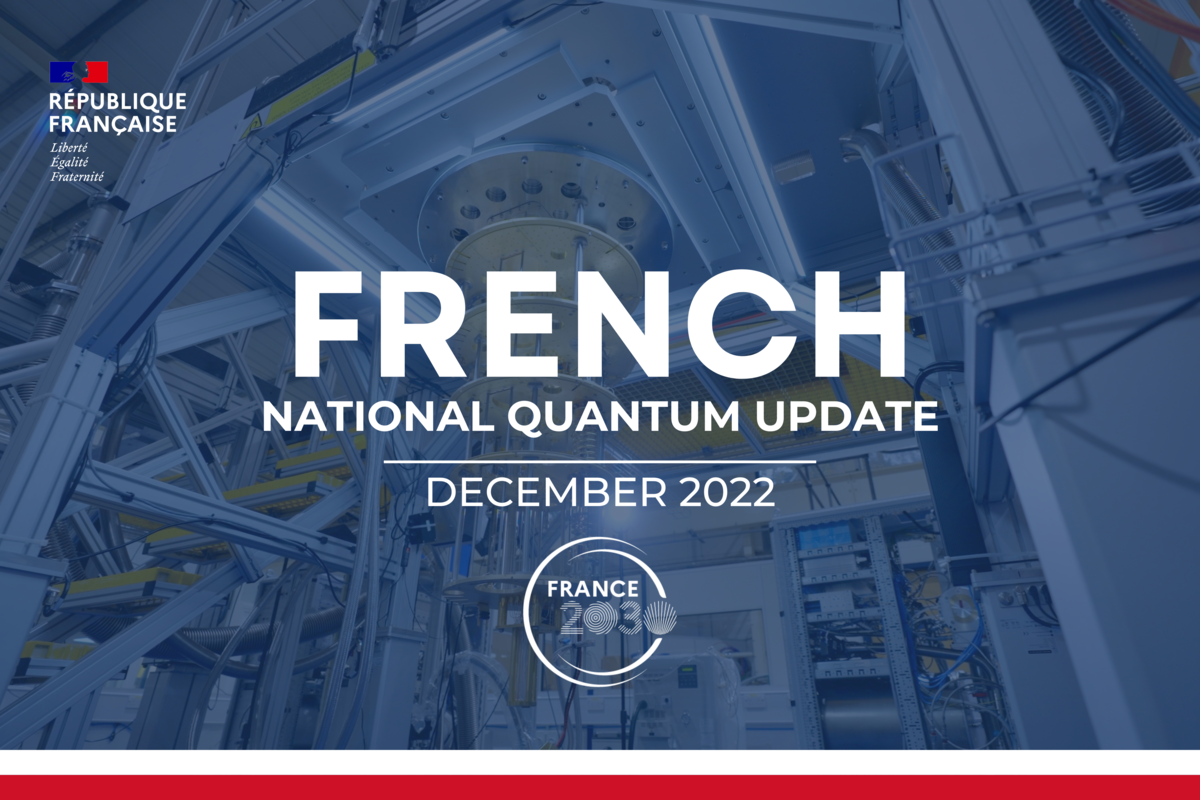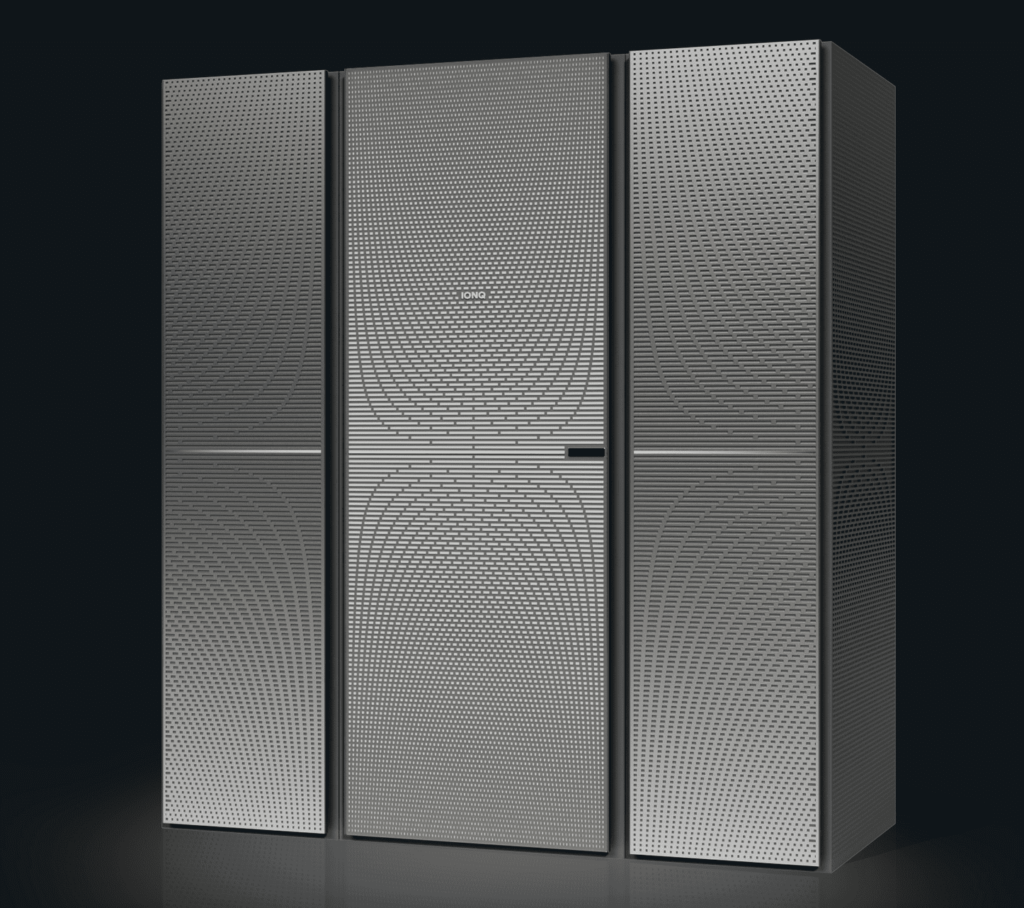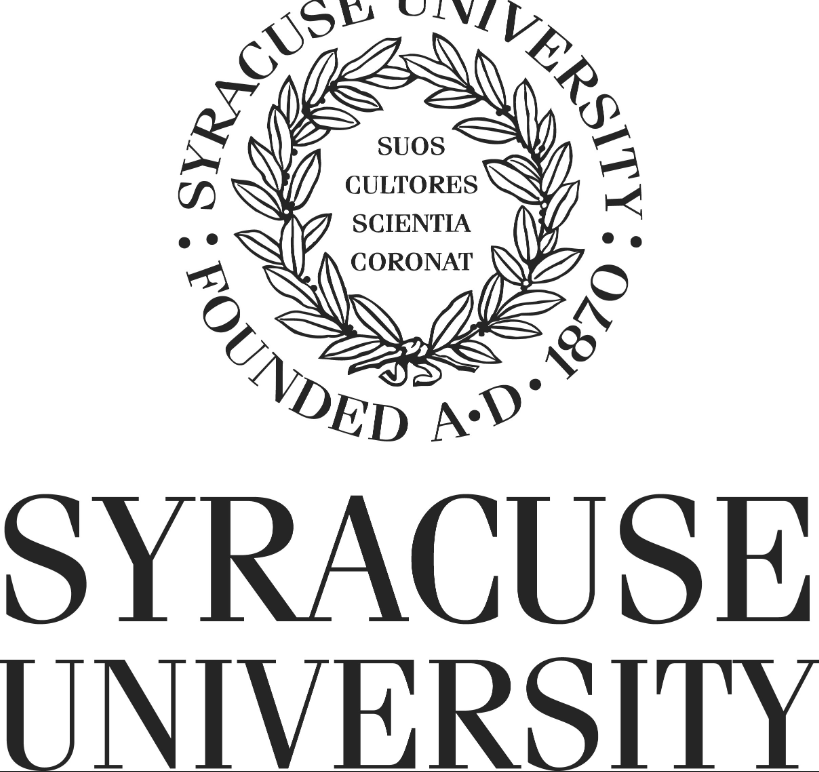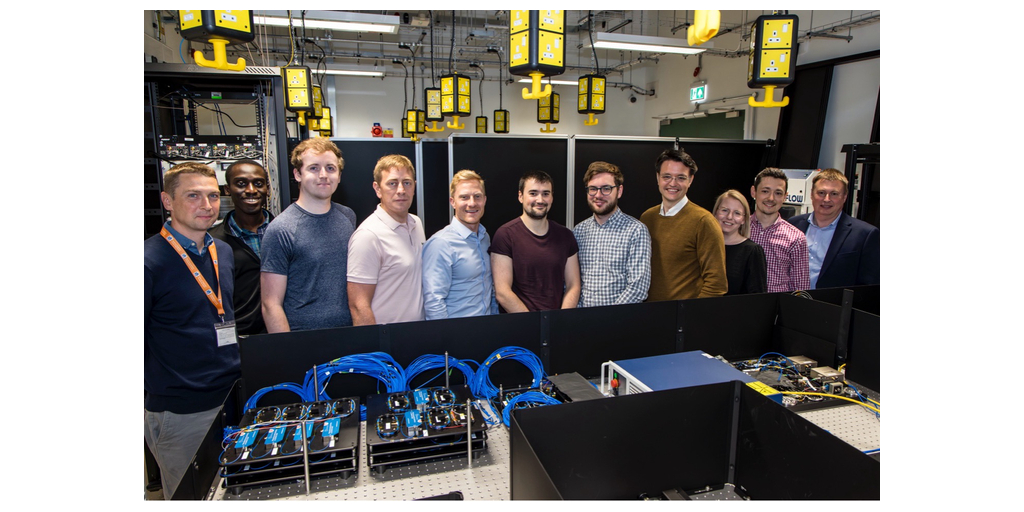Executive Summary
As 2022 came to an end and winter settled in, the French quantum community heated up. The ecosystem was busy across all the segments that make up this emerging industry — from government to startups and companies and from educational institutions to research institutions. Of particular note, France transmitted a post-quantum cryptographic message. This first-ever encrypted diplomatic message was sent from the French Embassy in the U.S. to Paris. French companies demonstrated increasing technical expertise. PASQAL is one example. The company has partnered with Exail to develop cutting edge laser and control solutions to push the possibilities of quantum computing. France’s Alain Aspect also delivered his Nobel Prize lecture in December.
Read about these headlines and more below.
Policy
France Transmits Its First Diplomatic Message in Post-Quantum Cryptography
The French Embassy in the United States sent its first encrypted diplomatic message to Paris using a new generation of so-called post-quantum cryptography, aimed at resisting the decryption capabilities of a quantum computer. For this test, carried out during President Emmanuel Macron’s State visit to the United States, the French Ministry for Europe and Foreign Affairs drew on the work of the startup CryptoNext Security, a business which emerged from research by INRIA, the CNRS and Sorbonne University and which is developing post-quantum cryptography solutions.
Capital
Launch of Siquance, a Start-up Dedicated to Quantum Computing
Siquance, a start-up from the CEA and the CNRS, was launched on November 29, 2022 in Grenoble. Co-founded and directed by Maud Vinet, Siquance aims to develop and eventually market a quantum computer based on microelectronics technologies and by exploiting the capacities of European semiconductor producers. Siquance wishes to be at the forefront of French and European sovereignty in the field of quantum computing.
Business
Bringing PASQAL Quantum Processors to Industry Standards With Exail’s Intelligent Laser Systems
Since April 2020, PASQAL has partnered with Exail (ex-Muquans) to develop cutting edge laser and control solutions to push the technological boundaries of quantum computing. This is a closer look at the company’s neutral atoms based quantum technology and how Exail helps to industrialize the first quantum processors.

Sigma Reply Becomes a Quandela-Certified Partner
With expertise in Quantum Computing developed since 2018 and after having reviewed Quandela full stack offering, Sigma Reply chooses to become a Certified Consulting Partner of Quandela, the leading European photonic quantum computer company. Sigma Reply will train and certify its application engineers to Quandela’s simulator Perceval and photonic processors MosaiQ, and will have a preview access to Quandela’s Cloud QPU service. As a result of this partnership, Quandela and Sigma Reply will offer to their joint customers the combination of their respective expertise in quantum application development and in Quantum simulation and real QPU processing available through the cloud.
Qubit Pharmaceuticals Accelerates Drug Discovery With Hybrid Quantum Computing
The promise of quantum computing is to solve unsolvable problems. And companies are already making headway with hybrid approaches — those that combine classical and quantum computing — to tackle challenges like drug discovery for incurable diseases. By accelerating drug molecule simulation and modeling with hybrid quantum computing, startup Qubit Pharmaceuticals is significantly reducing the time and investment needed to identify promising treatments in oncology, inflammatory diseases and antivirals.
Research
Pascale Senallart, Co-founder of Quandela, Enters to French Academy of Science
At the end of the elections in 2022, the Academy of Sciences has just elected 18 new members. Among them are two physicists and a physicist working in laboratories attached to the CNRS Institute of Physics: Agnès Barthélémy, Lecturer-researcher at the University of Paris-Saclay at the Joint CNRS/Thales Physics Unit, UMPhy, CNRS/Thales/Paris Saclay University; Lydéric Bocquet, CNRS Research Director at the ENS Physics Laboratory, LPENS, CNRS/ENS/Sorbonne Univ./Univ. Paris Cité and Pascale Senellart, CNRS Research Director at the Center for Nanosciences and Nanotechnologies, C2N, CNRS/Univ. Paris-Sud.
QuaCS and Quandela: Highlighting the Potential of Quantum Algorithms
QuaCS, an Inria project team specialising in quantum computing, and Quandela, a pioneering start-up in the development of photonic quantum computers, have taken the decision to bring their complementary skill sets together to form a partnership. So far, this partnership has been able to develop an algorithm for simulating the behaviour of photons, as well as a graphical language for optimising photonic circuits.
The CNRS and UChicago Launch a New International Research Centre
The CNRS has just opened its fourth International Research Centre (IRC), this time with the University of Chicago, one of its leading partners in the United States. The agreement to create the International Research Centre for Fundamental Scientific Discovery (IRC Discovery) was signed on 30 November in Washington DC, by the CNRS Chairman and CEO Antoine Petit and UChicago President Paul Alivisatos, during the state visit of French President Emmanuel Macron.
PASQAL and University of Chicago Announce Neutral Atoms Quantum Computing Research Collaboration Agreement
PASQAL, a leader in neutral atoms quantum computing research headquartered in Paris, today announced a collaboration agreement with Professor Hannes Bernien at the University of Chicago. The collaboration aims to advance neutral atom quantum computing. PASQAL and Bernien will accomplish this by developing new techniques for enabling high-fidelity qubit control.
Education
EPITA engineering School Launching Major Quantum Information Science Education Program
By launching its new “Quantum” major, EPITA is deploying the most ambitious and successful training in French higher education. For several years, the School has been offering a Quantum minor, providing 39 hours of lessons, and led by one of the most renowned specialists in the field, Olivier Ezratty.
Events
Systematic Innovation Hub Event
Quantum Technologies make it possible to approach, in complementarity with HPC/HPDA Technologies, new classes of numerical problems of great complexity such as combinatorial optimization, learning and Artificial Intelligence systems, the resolution of certain PDEs , data encryption and security, etc. These technologies are experiencing very rapid development thanks, in particular, to the creation of a very active ecosystem of innovative start-ups. New algorithmic approaches are developed and new use cases are tested in partnership with major manufacturers.
Alain Aspect Nobel Lecture
Alain Aspect delivered his Nobel Prize lecture From Einstein’s doubts to quantum technologies: non-locality a fruitful image on 8 December 2022.
For more market insights, check out our latest quantum computing news here.




















